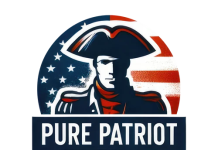DETROIT (Bloomberg) — Imagine a robot car with no one behind the wheel hitting another driverless car. Who’s at fault?
The answer: No one knows. But plaintiff’s lawyers are salivating at the prospects for big paydays from such accidents. If computers routinely crash, they say, then so will cars operated by them. And with no one behind the wheel, lawyers say they can go after almost anyone even remotely involved.
“You’re going to get a whole host of new defendants,” said Kevin Dean, who is suing General Motors over its faulty ignition switches and Takata Corp. over airbag failures. “Computer programmers, computer companies, designers of algorithms, Google, mapping companies, even states. It’s going to be very fertile ground for lawyers.”
Driverless cars from Google Inc. and other manufacturers are touted as leading to an accident-free future, where precise, robot reflexes keep passengers out of harm’s way. That automotive utopia may one day eliminate death on the highway, proponents say. But before then, it’s inevitable that first-generation robot cars are going to collide with other driverless vehicles and those with accident-prone humans behind the wheel.
Possible roadblock
“There is going to be a moment in time when there’s going to be a crash and it’s going to be undetermined who or what was at fault,” said David Strickland, former head of the National Highway Traffic Safety Administration and now a partner at the Venable LLP law firm in Washington. “That’s where the difficulty begins.”
Consumer concerns about liability could represent a roadblock to acceptance of driverless cars. That’s why Volvo Cars, Google and Daimler AG’s Mercedes-Benz have all pledged to accept liability if their vehicles cause an accident.
“We want customers to trust we’ve done a really good job,” said Anders Eugensson, Volvo’s director of government affairs. “That’s why we say if anything happens, we assume liability. We feel we can’t launch vehicles to customers unless we’re able to make that statement.”
But plaintiff’s lawyers don’t make much of that pledge, which they see as merely a marketing ploy.
“Every car manufacturer says, ‘We absolutely stand behind our car if there’s anything wrong with it,”’ said David Bright, a Corpus Christi, Texas, lawyer who represents victims in auto-defect cases. “Then they say, ‘There’s nothing wrong with it.’”
Not foreseen
What makes the issue so tricky is that current law holds a car owner, often the driver, responsible for accidents, first and foremost. If an owner wants to blame the manufacturer, then he or she must prove the company was negligent in some way. But modern product-liability law didn’t contemplate cars without drivers.
“There’s going to have to be some changes to the laws,” Strickland said. “There is no such thing right now that says the manufacturer of the automated system is financially responsible for crashes.”
And the owners of self-driving cars might not feel so responsible in a collision, especially if they’re sleeping in the back seat or, as Volvo’s Eugensson suggested, “updating Facebook.”
No clarity
“No one wants to be sued or be arrested for a crash that they were powerless to prevent,” said Bryant Walker Smith, assistant professor of law at the University of South Carolina who has written extensively on driverless-car liability.
So the first owner of a driverless car to be in such an accident will have an opportunity to set a precedent by suing the maker of the autonomous system, which could be a car company or a technology firm. Such a case might also test current insurance-coverage notions, which presume that the driver is primarily responsible.
Anyone suing won’t find much clarity in existing case law. A search of court records found limited litigation over autonomous features, such as automatic braking or lane-keeping, which steers a car back into the correct position if it crosses the line.
Volvo has asked that regulators come up with uniform rules of the road for driverless cars. The automaker is concerned that “there’s going to be a patchwork of regulations in the U.S. from different states,” Eugensson said.
Google’s track
This month, California proposed rules for driverless cars that would require a human always be ready to take the wheel. The proposals would also compel the companies creating the cars to file monthly reports on their performance. Google said it was “gravely disappointed” in the proposed rules, which could set the standard for autonomous-car regulations nationwide.
Google, which has developed a car with no steering wheel or gas pedal, is on a fast track. It plans to make its self-driving cars unit a standalone business next year and someday operate them in a ride-hailing service, according to a person briefed on the company’s strategy.
Google and Ford Motor Co. also are said to be negotiating an agreement in which Ford would produce the next generation of autonomous cars for Google, as Automotive Newsreported Tuesday. Neither Ford nor Google would confirm if such an agreement has been reached.
While lawyers focus on the safety of autonomous autos, human error remains the cause of more than 90 percent of the 33,000 fatalities on U.S. roads annually. Robot cars are expected to radically reduce that number. And they’ll be backed by the world’s richest technology companies and automakers.
“If you have to be hit by a car, then you should hope that you’re hit by an automated car because you will likely have recourse to a company or companies with far deeper pockets than your average driver, vehicle owner or insurance policy,” Smith said.









I am Spartacus.
https://www.youtube.com/watch?v=-8h_v_our_Q
End of screenplay…
Cuts of Varinia and her child.
They look back on vanishing Rome without seeing it; they see the husband and the father who made them free. He doesn’t see them, but the audience will feel he does, for in the moment of uttering the last word of his life – – – – “Free !” – – – – he, too, became free. And to be free is to see and to know.
Fade Out
Spartacus screenplay, by Dalton Trumbo
https://indiegroundfilms.files.wordpress.com/2014/01/spartacus.pdf
FBI – Fuhhhhtball Beauty of India
http://www.nfl.com/videos/nfl-videos/0ap2000000069063/Thursday-Night-Kickoff-Week-5
When I lived on the south side of Chicago some of the residents of the government housing projects played a game with traffic. There were two goals, one was to make a driver stop for the sake of having the power to do so and the other was to get hit but not too hard. The later would generate a payday from an insurance company. They would try to size up a driver as being one who would have insurance first however. If you looked like one of them and drove a beater they weren’t going to step into your path.
These automated cars are going to follow repeatable logic. In other words through observation an enterprising individual will figure out how to get the car to hit him and generate a payday. He will do this until people figure out its on purpose. The method will spread. Many individuals will figure it out on their own. Government will become more involved.
There will be no lawyers generating big fees for this. There will, however, be lots and lots of new regulations that will limit the liability of everyone (except the owner of the vehicle).
One thing that seems to be forgotten is that in a libertarian “paradise” the civil courts will be the place to settle escalated disputes. There might be prior case law to provide guidelines, but typically we’ll see the best lawyer win. The upside of having a bunch of lawyers around is that people will be far more likely to settle their differences before things get to that point, as opposed to the morass of arbitrary rules and regulations based on what is almost always a minority of injured parties.
“No one wants to be sued or be arrested for a crash that they were powerless to prevent.”
Of course, nor should they be. The whole concept of liability involves fault.
If a manufacturer produces a car that fails to prevent an accident, they are at fault. Unless of course, the car is built to gunvermin approved standards, as is likely to be the case. In that event, the gunvermin is at fault. But they have already determined themselves, by fiat, to not be subject to such lawsuits, etc.